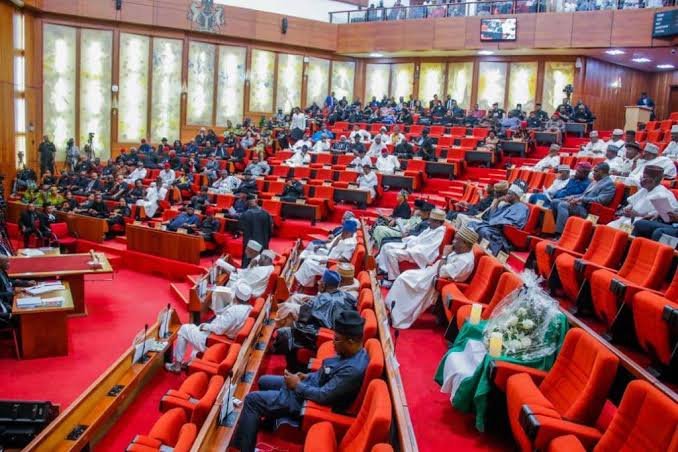Strike: Senate summons emergency meeting with NLC, TUC leaders

The Senate voted on Wednesday to call an emergency meeting with labour leaders to address the ongoing statewide strike by the Nigeria Labour Congress (NLC) and Trade Union Congress (TUC).
The Red Chamber explicitly encouraged the unions to call off the strike triggered by the November 1 attack on NLC President Joe Ajaero in Imo State.
The resolutions were passed in response to a motion made during plenary by Senator Abdul Ningi (PDP, Bauchi Central) on the nationwide strike that has halted several official activities.
Senator Opeyemi Bamidele, the Senate Leader, criticized the attack on Ajaero in the motion, calling it “unfortunate.”
According to him, the NLC president has the constitutional right to participate in the state election as a Nigerian and Imo citizen, and that it was wrong to brutalize him for doing so.
He said:
“The Senate is aware that the strike which has commenced since 14th of November 2023 is not unconnected with the assault on the president of the Nigeria Labour Congress during the electioneering campaign that took place in Imo State.
“The Senate worries that most of the demands of the NLC are not targeted towards just the welfare of the Nigerian workers but essentially targeted most essentially at issues arising from the alleged political involvement of the President of the NLC, who also is an indigene and also has a right to be a part of the campaign process in Imo State.”
The lawmaker said it was found that, as a matter of fact, there was indeed assault on the President of the NLC freely who was participating in the political campaign process of Imo as a citizen of the state.
He expressed worry that if the strike is allowed to continue, Nigerians would be the worst for it and it could lead to a total collapse of the economy.
Some of the senators in their contributions, including Ali Ndume (APC, Borno South) and Adams Oshiomhole (APC, Edo North), condemned the attack on the NLC president, but added that the entire country should not continue to suffer for alleged offence committed in one state.
